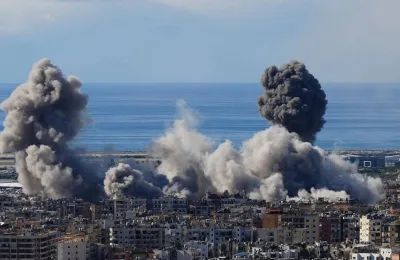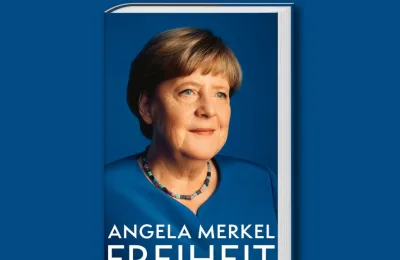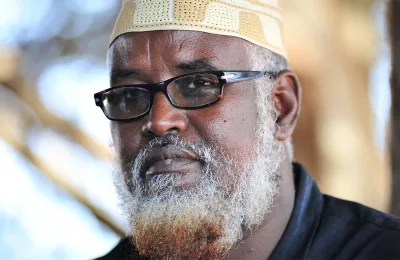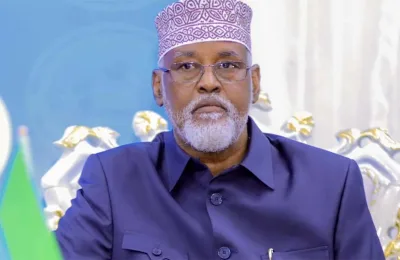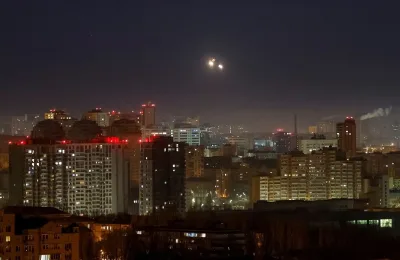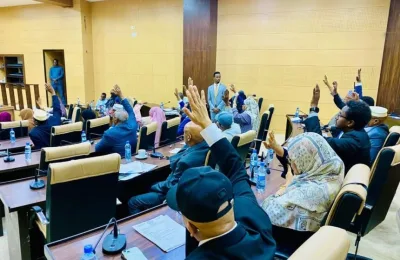Kenya’s veteran opposition leader has warned that a political crisis triggered by a disputed presidential poll…
 Kenya’s veteran opposition leader has warned that a political crisis triggered by a disputed presidential poll and years of “ethnic discrimination” have stirred an unprecedented debate about secession.
Kenya’s veteran opposition leader has warned that a political crisis triggered by a disputed presidential poll and years of “ethnic discrimination” have stirred an unprecedented debate about secession.
In an interview with the Financial Times in London, Raila Odinga said he did not support the secession of western Kenya, where he has strong support among the Luo and Luhya ethnic groups, but “the debate about self-determination is gaining currency”.
“When people become desperate they resort to desperate measures,” he said.
Mr Odinga said that power had for too long been dominated by two communities, the Kikuyu and the Kalenjin, which had provided every president since independence in 1963. Uhuru Kenyatta, the current president, is Kikuyu and his deputy, William Ruto, is a Kalenjin.
The political crisis was triggered after Mr Kenyatta was declared the victor of August elections, defeating Mr Odinga.
Mr Odinga, a Luo, successfully overturned the result of the presidential vote in the supreme court. But he is refusing to participate in a re-run until election procedures are overhauled. Mr Odinga dismissed recent developments in the high court and parliament that could lead to a re-run on October 26 as “inconsequential”.
If the election went ahead without him, he said, “it will be a gross violation of the constitution . . . basically a nullity, null and void”.
Abdikadir Hussein, a government lawyer, said Mr Odinga had boxed himself in by withdrawing. “Raila is blaming everybody and anybody but himself for his loss.” The stand-off is stirring more protests.
Three people were shot dead and others injured on Friday when police opened fire in Bondo town in western Kenya after Mr Odinga’s supporters took to the streets demanding wholesale reform of the electoral commission before a re-run is held.
The political limbo following the election has damaged investor and consumer confidence, causing the economy to slow sharply. More than 30 people were killed, mostly by police, in demonstrations after Mr Kenyatta was declared the winner of the August poll.
John Githongo, a prominent Kenyan activist, said that although there had never been strong secessionist movements in the country, the impasse following the August election had ignited a discussion.
“It is a subject of intense debate. You have demonstrators walking around with flags saying ‘People’s Republic of Kenya’,” Mr Githongo said. “As a debate, I can categorically say this has legs.” But, he added, the debate may not gain political traction because “the big political beasts”, including Mr Odinga, had rejected it.
Last month, two residents of western Kenya lodged a petition at the high court to hold a referendum on national and territorial rights for the area formerly known as the Eastern Province of Uganda and inhabited mostly by Luhya people.
“We believe in a united Kenya. We do not support secession,” said Mr Odinga. “But you have seen the disintegration of countries in eastern Europe.
This debate about self-determination is gaining currency as a result of mis-governance. People feel they have been completely disenfranchised.” David Ndii, a senior adviser to Mr Odinga who in August publicly discussed secession, on Friday said he did not support it.
“But we’re clearly in a political environment that could start hurtling downhill and it could go in any direction,” he said. “The country is very divided.” Last week the government banned protests in the central business districts of Nairobi, Mombasa and Kisumu, though Mr Odinga’s supporters came out anyway.
The opposition has promised to escalate its demonstrations to every day from this week.
Source:ft.com

